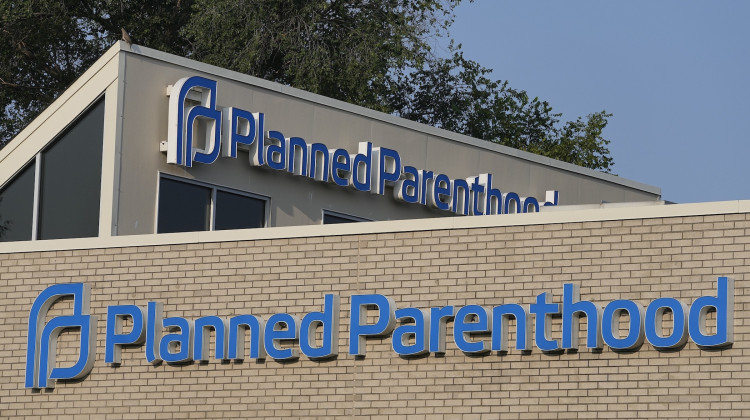
The newly approved second booster dose comes as COVID-19 omicron variant B.A.2 spreads rapidly in Europe, and leaders fear a similar surge in the United States.
(Lauren Chapman/IPB News)Hoosiers aged 50 and older – and certain immunocompromised people 12 and older – are now eligible for a second COVID-19 booster shot.
The Indiana Department of Health announced Wednesday that providers can begin to administer second boosters to eligible people. This follows the U.S. Food and Drug Administration's approval of a new round of Moderna and Pfizer-BioNTech booster shots for eligible groups, as long as four months has passed since receiving the first booster. Individuals who received the Johnson & Johnson vaccine and received a booster at least four months ago can also receive a second booster dose of either the Moderna or Pfizer vaccine.
READ MORE: Do I really need another booster? The answer depends on age, risk and timing
The newly approved second booster dose comes as COVID-19 omicron variant B.A.2 spreads rapidly in Europe, and leaders fear a similar surge in the United States. Hospitalization rates are relatively low across the U.S., but this new variant accounts for more than half of new cases nationwide. Indiana health officials said the variant of omicron has been detected, though it is not broken out in the state's sampled cases data.
It’s unclear how popular the second booster will be, as less than one-third of Indiana’s eligible residents have received the first booster shot. Indiana ranks poorly in overall vaccination status: an estimated 57 percent of Hoosiers ages 5 and older are fully vaccinated, compared to the U.S. average of 66 percent.
Evidence shows that as immunity wanes against the virus, serious outcomes will become more likely in older and immunocompromised Americans.
In weighing whether to get the additional dose, experts advise considering factors such as age, other health conditions and timing from the last dose or prior infection. Evidence suggests immunity wanes with age, and older people are at greater risk of serious illness. Certain underlying conditions can also put people at higher risk.
Some in the medical community are divided on whether the additional dose is necessary at this time. Unlike previous vaccine approvals, independent advisors at the FDA and U.S. Centers for Disease Control and Prevention have not weighed in on the decision.
“The medical community itself is split over whether a fourth dose is needed,” Leana S. Wen wrote in an op-ed for the Washington Post. “That’s because there is no consensus about the purpose of vaccination. Is it to prevent severe disease? Or is it to reduce any symptomatic illness?”
In the agency’s announcement, the CDC did not make it clear how urgently people should seek a second booster, according to reporting from NPR.
“Based on an analysis of emerging data, a second booster dose of either the Pfizer-BioNTech or Moderna COVID-19 vaccine could help increase protection levels for these higher-risk individuals,” said Dr. Peter Marks, director of the FDA’s Center for Biologics Evaluation and Research in a statement. “Additionally, the data show that an initial booster dose is critical in helping to protect all adults from the potentially severe outcomes of COVID-19. So, those who have not received their initial booster dose are strongly encouraged to do so.”
To find a vaccine location, visit www.ourshot.in.gov or call Indiana 2-1-1.
This story comes from Side Effects Public Media — a public health news initiative based at WFYI. Follow Carter on Twitter: @carter_barrett.
 DONATE
DONATE






 Support WFYI. We can't do it without you.
Support WFYI. We can't do it without you.